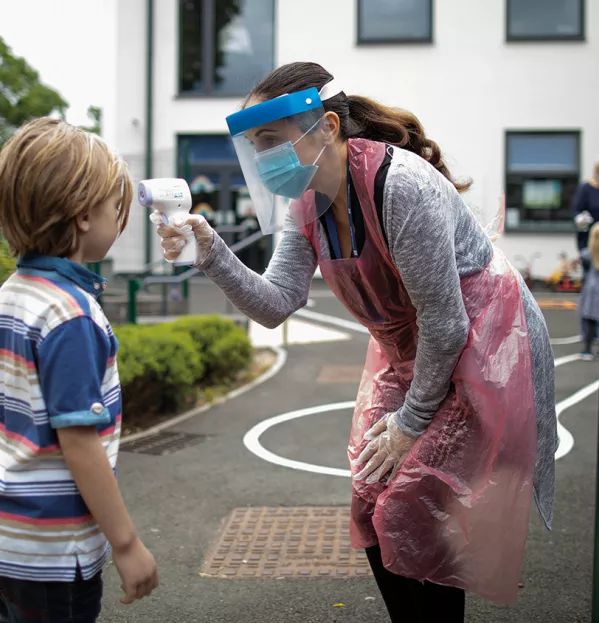I have never been a fan of reducing complex data to a graph. I look at most graphs in the same way that I look at Magic Eye prints: I squint at them for some time, pushing them towards and away from my face at random intervals, until I eventually give in. I can see nothing. The marks on the page are not furthering my understanding and bringing clarity; they are giving me a migraine.
Unfortunately for me, in editing this week’s cover feature, I was faced with a large number of graphs. John Morgan was set the task of pinning down the value of education by looking through decades of research. He emerged holding a number of graphs that all point to the same conclusion: more time in education makes us happier, wealthier and more productive adults.
Now, I understand why graphs and the data they are based on are so important in calculating the value of education: we want to know that those years we invest in our pupils bring a return. And I am aware that this economic model is key to getting the funding schools need, particularly now, as we push for educational “recovery”. I also know that, because all this data is complex, a handy graph or two, with key metrics, can persuade time-poor ministers to open their wallets.
But if we push this narrative too forcibly, we narrow the education experience to only that which can be expressed in graph form. Thus, we risk dehumanising it, forcing it into general outcomes and away from the journey that unfolds for individuals.
The purpose of schools and education
What did education do for me? Off the top of my head: Mr Watts gave me the confidence to write; Chris Burchill taught me to shoot an air rifle at his 8th birthday party; the feeling of being part of something bigger; my first girlfriend; a deep knowledge of my limitations; a first sight of injustice when my neighbour, the only black pupil in school, was singled out by a member of the public among a group of boys being disruptive on the bus; independence; a group of friends who will always have each other’s back, no matter what happens.
Try it yourself now: list the first things that come to mind when you think about what education gave you.
These personal accounts are important - and not just because they enable a broader view of educational purpose. They also give us access to a richer data set from which to make better policy decisions.
On a macro scale, we can see that fewer years in education equates to less happy, less productive citizens, but we don’t really know why. We also know that the same numbers of years in education still produce inequitable outcomes. Trying to leverage large-scale data to address these issues isn’t working. Only in the personal stories of educational experience can we get rich enough data to pinpoint solutions.
This is not a request to ignore “big” data in calculating the value of attending school. Instead, it is a plea not to forget that, in individual experience, we are more likely to find the true, multifaceted worth of school, and the keys to unlocking its transformative effect for more pupils.
Yes, a focus on individual experience makes it harder to calculate education’s worth. But being able to embrace and overcome difficult challenges is what we go to school for, right?
@jon_severs
This article originally appeared in the 28 May 2021 issue under the headline “You can’t tot up education’s true value without getting personal”




